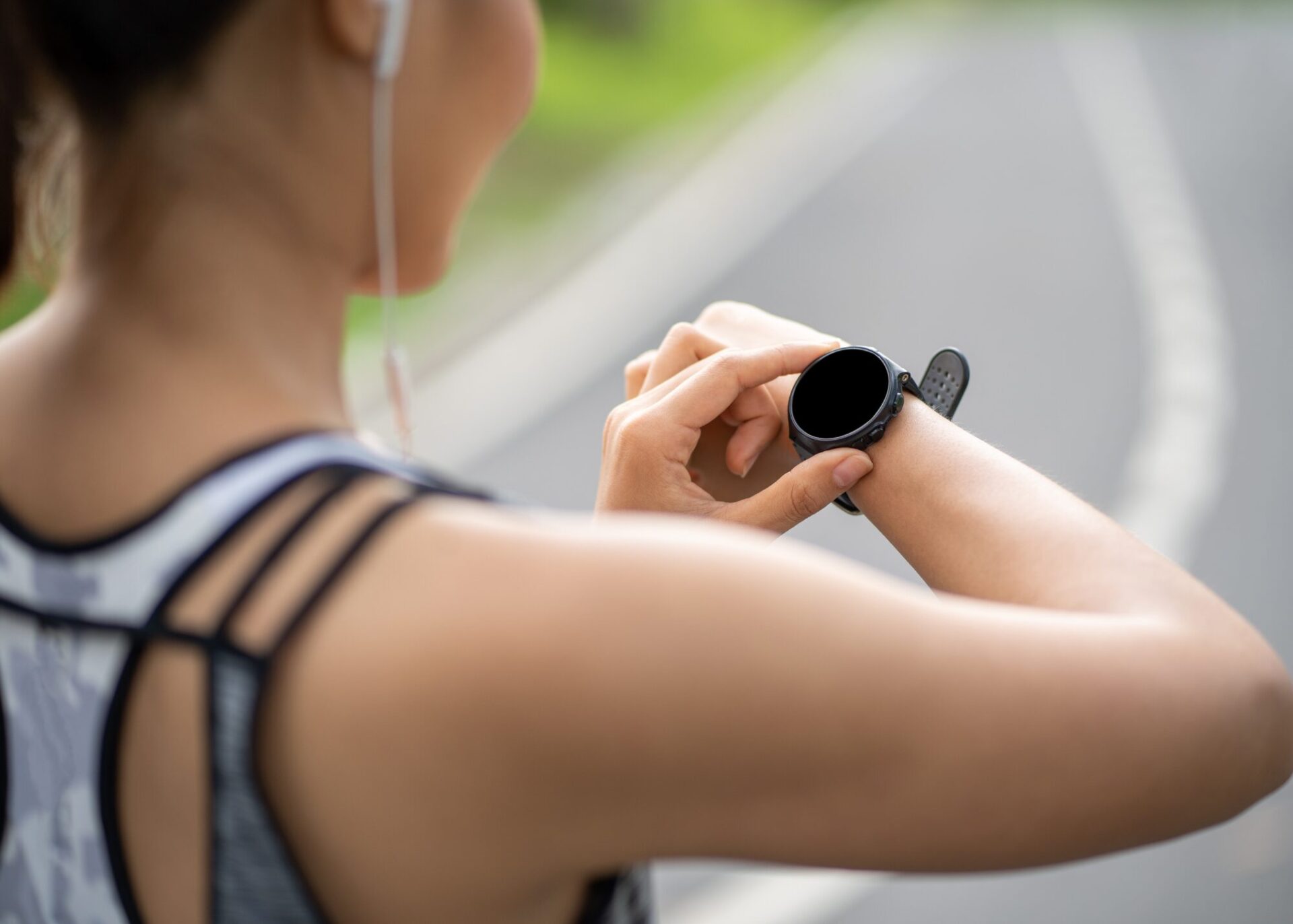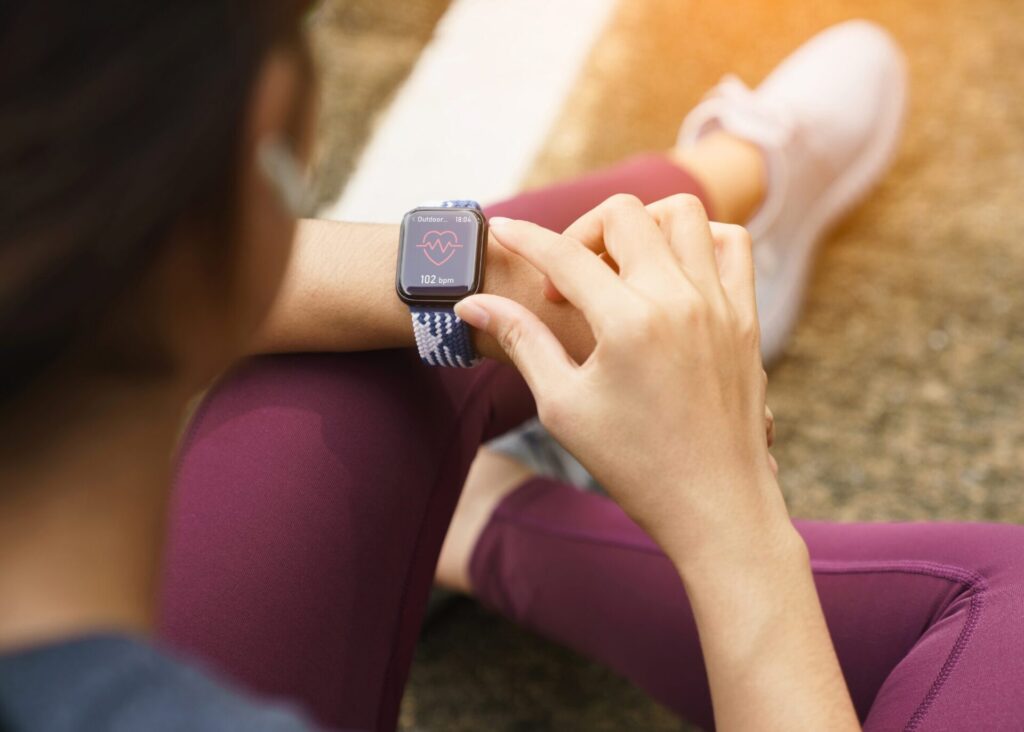
For years, I was against wearing a fitness watch of any kind. I kept saying to anyone who would listen (and there weren’t many), “I don’t need a glorified pedometer!” But when I got into running a few years back, as well as other outdoor activities, I was interested in something that could track my runs easily.
Note: There are some affiliate links below. This means that if you click, a small amount is given to support TFT. You can read our disclaimer here.
Now, it’s been years with a Fitbit or Garmin model of some sort strapped to my wrist. As my commitment to health and physical activity is still going strong (and as so many of us are taken with Huberman and Outlive) it’s worth a moment to reflect on what a fitness watch can teach us about our health, and our relationship to it.
7 Things I Learned Wearing a Fitness Watch
1. It is hard to pick a fitness watch. And picking the right one for our lives matters.
There are a lot of fitness watches out there. Buy a watch to fit the lifestyle you HAVE not the lifestyle you WANT.
Apple Watch is, indeed, a phenomenal piece of technology. But I am generally “screen lite” in my life. Apple Watch is complete overkill for me and doesn’t fit my lifestyle
Yet I knew I wasn’t going to be satisfied with something that only tracked my steps. I wanted a heart-rate monitor so I had a more accurate read on my calorie burn. I was also adamant on GPS ability for tracking hikes, runs, and paddling adventures. I didn’t care so much about other integrated features with my virtual life.
Of course, budget is a factor. There are so many different options available, but be realistic about what will serve you best at your budget marker. I have gravitated to Fitbit over the years due to its simplicity, ease of set up and use, and durability.
2. I don’t move as much as I thought.
I am a very active mom to two kids. As I watched my dad play with his new fitness watch prior to purchasing my own, I recall thinking it would be easy for me to get to 10,000 steps a day. Now we all know better: that is a hard goal.
(Sitting in the car driving from school to school does not count as movement…even though I am, technically, moving, and I do that many, many times a day.)

3. I burn more calories in daily life than I had estimated but less in exercise.*
This is what I value most about my fitness watch. As a longtime fitness freak, someone who loves my workouts and needs that adrenaline high, I formerly believed I was burning 400 calories during some of my workouts. I was basing this on Internet calculators and my estimates on RPE / fitness education. I was eating like I burned that much, too, and not getting the body I wanted. Something wasn’t working.
It turns out I was wrong about my workouts. I simply don’t burn as much as I thought, regardless of my exertion level. I still love my HIIT workouts and need them. But it was eye-opening to realize that the estimates on machines at the gym are way off.
On the other hand, I did discover that I have a high resting heart rate.
* Caveat to this: Even though I love getting some idea of what my general caloric burn is, research has proven that fitness watches still aren’t entirely accurate on energy burn. They estimate based on heart rate, weight, age, and averages. The calorie burn read-outs can be good general guides but should be understood to have a margin of error around 10-20%. There are some things you can do to increase accuracy. And, overall, I still find this information useful as a baseline and to track trends.
4. Monitoring heart rate is valuable information.
Part of the larger, overall lesson on health was understanding my heart health better. Knowing what my “normal” is helps me live in my body better.
Learning more about this, it is fascinating how much heart rate can tell us about our total body health. This includes everything from stress levels to muscular strength.
I also learned that higher heart rates during exercise aren’t necessarily better. Read more about heart rate monitoring, exercise, and what to know here.
5. Fitness watches can bring out certain personality traits, particularly around goal-setting.
I hate having goals and not meeting them, even if those goals are arbitrarily decided by a fitness watch and it keeps sending me notifications to move. I am highly motivated by measured goals and if there is an expectation, I will meet it.
This is inherent in who I am (for better or worse). If you are not necessarily driven by numbers and external motivators, don’t anticipate that this will be your diet/healthy lifestyle solution. (Find out how you respond to expectations in this fabulous book by Gretchen Rubin.)
Fitness watches can push us in some ways and they can help us track a baseline for our health, all good things if we let them be. But they can also exacerbate unwelcome patterns that already exist. Outside Magazine writes:
“Perfectionists, individuals with a history of eating disorders, and those prone to overexertion should exercise caution with tracking devices, as they may amplify existing issues.” [Perlus] adds that you may become goal-obsessed—often at the expense of your overall well-being.
6. Push notifications are not for me and I needed a watch that allows control around that.
I am easily distracted by push notifications and feel the need to check every single one as soon as my device vibrates. Yet when I am with someone who can’t stop checking their device every time they get a push notification, I get annoyed and frustrated. It makes me feel unimportant and unvalued. I learned I need a watch that has either very few push notifications and/or a lot of controls around push notifications so I can have as few as possible. (Which is also likely why I gravitate towards the simplicity of the Fitbit model.)
7. It makes me wonder about the future of our society and its fitness level.
Given how little I move and how important we have learned movement is to our bodies and longevity, a bit of an existential crisis can occur around these monitoring devices. My Fitbit has shown me time and again that on a typical day of work (wake up, kids to school, work, kids from school, nighttime routines), I get maybe 4,000 steps a day. That’s so low. I have to make a conscious effort to move my body every day. Of course, when I do, I feel so much better about life and have more energy to tackle daily life.
But it all starts to become very Wall-E in my head as I think about all of this.
I take comfort, though, in doing what I can. I am proud to try to take steps (literally) in the right direction.
For me, my Fitbit has helped me live healthier and encourages me to move some. It also helps me celebrate my wins. It turns out, a fitness watch is far more than a “glorified pedometer.”
